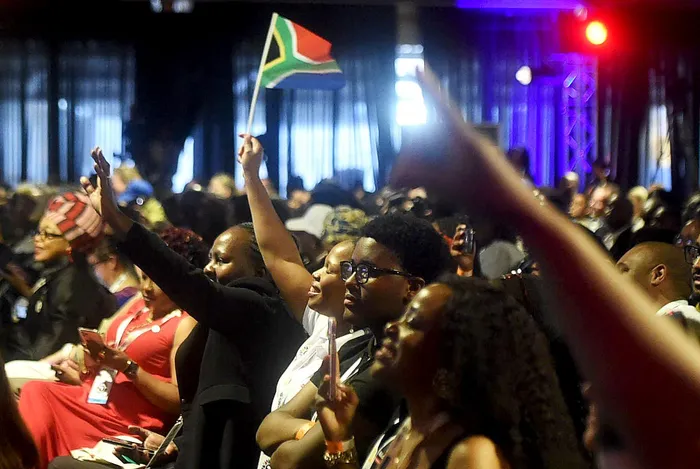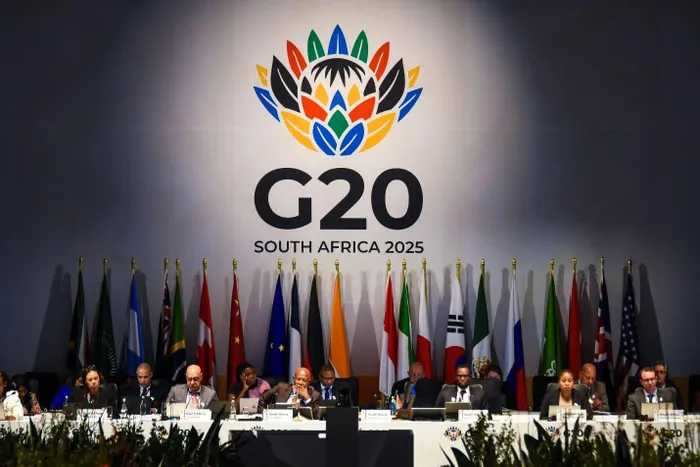G20 Summit: African activists demand end to fossil fuels

From Fossil Fuels to Community-Owned Renewables: African Activists Challenge G20
Image: Itumeleng English/Independent Newspapers
As South Africa hosts the G20 Summit this weekend, African civil society organisations are intensifying calls for a rapid transition from fossil fuels to locally owned, community-driven, and accessible renewable energy systems.
This demand comes at a critical juncture, with the COP30 climate negotiations that took place in Belem, Brazil, and the world’s attention on global climate action.
Amplifying this call, The Green Connection convened the G20 Civil Society Symposium on Climate Justice and the Green Economy in early November in Cape Town.

Te G20 Leaders' Summit is proceeding this weekend at Nasrec Expo Centre.
Image: Supplied
The gathering brought together activists, community leaders, and policy experts who formulated the ‘Cape Town Civil Society Charter’, a blueprint demanding just and equitable climate policies.
On Thursday this week, the Green Connection and allied organisations took part in a mass march against TotalEnergies’ century-long record of exploitation during the We, the 99% People’s Summit at Constitution Hill in Johannesburg.
“In countries like South Africa, governments must develop national and local adaptation plans that are participatory, transparent, and inclusive of those most affected – including women, youth, informal workers, and rural and informal-settlement communities,” said Lisa Makaula, Advocacy Officer at The Green Connection.
“Adaptation should protect livelihoods, secure water and food sovereignty, and build grassroots climate resilience. This requires ending fossil fuel subsidies, stopping oil and gas expansion, and prioritising grant-based climate finance for the Global South.”
Makaula highlighted the urgent need to address the justice implications tied to the extraction of critical transition minerals - essential for green technologies but laden with risks of exploitation.
“Global solidarity is critical now. The current fossil-fuel economy not only destroys our environment but also deepens inequality and violates human rights. Africa must not be pushed into another cycle of extraction. G20 leaders must recognise that communities - not corporations - should guide Africa’s energy future.”
The activists warned against saddling Africa with further debt financing for fossil fuel or outdated infrastructure projects as the rest of the world shifts toward cleaner technologies.
Makaula urged G20 nations to meet their climate finance commitments, including the pledge of USD 1.3 trillion annually by 2035, and called for reforms to international financial institutions.
“These institutions currently penalise African economies and obstruct effective climate action. Financial systems must serve people, not profit,” she stressed.
Beyond funding, civil society demands stronger protections for human rights, civic spaces, and the rule of law to ensure open public participation free from repression. This becomes especially critical as investments in lithium, cobalt, and rare earth minerals surge to meet green energy demands.
Neville van Rooy, Community Outreach Coordinator at The Green Connection, underscored the importance of fair management of Africa’s critical mineral reserves.
“While these minerals underpin global decarbonisation, communities must not face exploitation. Instead, they should benefit through local value-addition, decent jobs, and community ownership. This sector cannot repeat the injustices seen in the fossil fuel industry,” he said.
Van Rooy also called for transition policies that guarantee decent work, retraining, social protection, and protection of sustainable livelihoods such as small-scale fishing and eco-tourism.
Liz McDaid, The Green Connection’s Strategic Lead, reflected on South Africa’s G20 Presidency as a historic opportunity.
“With the world watching, we hope governments will act for people and the planet rather than continue subsidising industries that may drive the crisis. Meaningful progress requires ethical, transparent leadership serving people, not corporate interests. And public funds and climate finance must be managed with integrity.”
As global leaders prepare to convene, African activists remain steadfast in demanding a just, equitable transition that centers community voices - calling on the G20 to choose people-powered renewable energy systems over fossil fuel expansion.
thabo.makwakwa@inl.co.za
IOL Politics
Get your news on the go. Download the latest IOL App for Android and IOS now.
Related Topics: